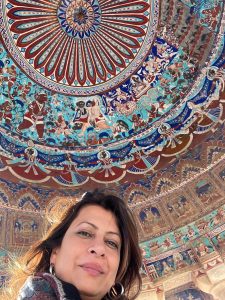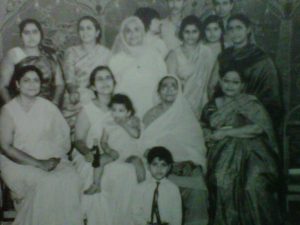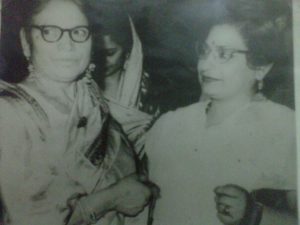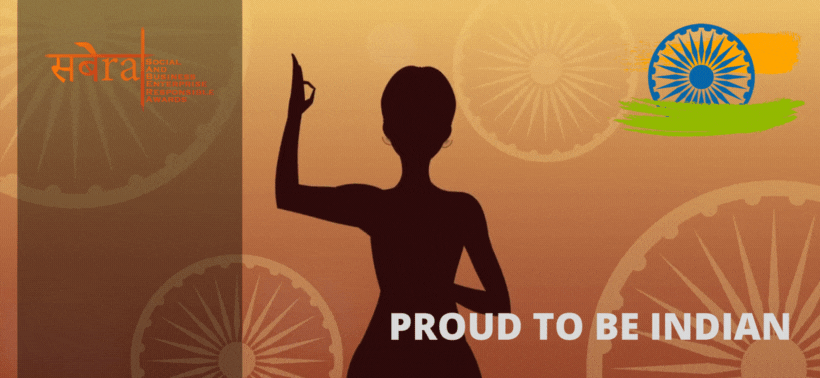The 75th year of Independence, Azadi ka Amrit Mahotsav. An important milestone to reflect how far we’ve come and the road ahead on the journey that beckons. The wise build the future of tomorrow on the wisdom of yesterday. And boy, did we have a wise past. The rich socio-cultural heritage of our land offers many lessons to learn from. The biggest and the most relevant for the planet today is the sustainable way of life. From food, clothes, and medicine in fact all aspects of life were always closely associated and in alignment with nature.
The divinity of the land includes worshipping all forms of nature including the sun, fire, rivers and more. Did you know the Vedas, the most ancient Sanskrit scriptures that literally mean knowledge, didn’t have a deity as part of the narrative? Instead, they revere nature as the supreme form of divinity.
Food
The recipes handed down from our great grandmothers to our mothers always include ingredients that not only provide taste but add nutritive or medicinal values. Turmeric is an optimal example, the healing properties of the herb are now being
acknowledged at large so much so that the international coffee chains are now selling ‘Golden Lattes’ on their menu.
Exercise
Yog as an all-around mode of health and wellness has also become a way of life across the globe. Research on mindfulness, breathing techniques and meditation are increasingly becoming antidotes to stress-induced lifestyle diseases. Allopathic prescriptions include techniques of Pranayam and ‘Dhyan’ besides flexing muscles of the body through asana or holding body postures specific to different parts of the body.

Posing under a 250-year-old Fresco in Shekhawati, Rajasthan
Art
Art and music have always been a part of the cultural lineage. My recent trip to Shekhawati in Rajasthan revealed many century-old frescoes preserved despite the vagaries of time. Colours or stains were made with natural dies of saffron, stone, soot and more using, quite literally, sustainable plastering techniques.
Even the traditional dance art form has been a form of sustainable exercise that keeps the body’s functionality and vitality in optimal condition.
Utensils
Copper utensils have long been used to cook and store food. Did you know drinking water from a copper vessel reduces blood pressure? The added nutritive value of cooking in earthen pots or brass/copper/cast iron utensils has been a part of ancient wisdom.
Cultural references to using Banana Leaf in Southern India or dried leaves ‘Pattal’ stitched with twigs in Nothern India are still quite prevalent as a sustainable means of serving food.
Clothes

My Maternal Great Grand Mother, Baijee, with her brood including my grandmother and mother.
With an abundance of cotton, it is the most comfortable, breathable and sustainable fabric used in tropical countries like ours for aeons. We’ve all seen our Great Grand Mothers, Fathers, Uncles and Aunts look fabulous in starched cotton sarees and kurta pyjamas or pure silk ensembles. Both of which are easily compostable.
Being a strong advocate of sustainable menstrual hygiene, I can’t lay enough stress on how cotton cloth pads are the most appropriate form of menstrual hygiene that is not only kind to the women’s body but also to our planet. Did you know that one regular sanitary pad is nothing but 4 plastic bags each that won’t disintegrate for millennia to come?

Both my paternal and maternal Grand Mothers. Mataji and Chaijee
Grooming
Neem twigs, popularly known as ‘Daatun’, are used even today to chew on and keep teeth healthy and clean. Neem combs are making a comeback in households to prevent hair fall and keep the scalp healthy and hair luscious. I remember my Nani would use gooseberry seeds (Reetha) to wash her and her children’s hair. And till this day my mother who turned 80 has naturally dark hair more than any of my siblings or me who grew up using chemical shampoos and hair colours.
The list is endless.
As we take a breath, reviewing and getting ready for SABERA 2022, it only seems appropriate to share the WHY. Recognising GOOD India Does; Preserving our sustainable wisdom aligning with Nature and showing the way forward to the WORLD.
The native wisdom of our land has always been around a sustainable way of life aligning with nature and its resources. Through the length and breadth of the subcontinent, there are living contextual references that reflect this. All we need to do is recognise them!
SABERA simply acknowledges the age-old and amplifies the newer efforts creating a Social Impact. Remaining true to its name, SABERA, is the dawn that consistently brings with it the assurance of a new day, building on the past, paving way for a brighter future. Rebuilding a positive narrative, highlighting the GOOD that you and I do.
A very Happy Independence day!
Here’s to Recognizing the GOOD that India does!
Yours Sincerely,
Suparnaa Chadda
| Founder of the Simply Suparnaa © Media network a UN Women awardee. Suparnaa Chadda consciously works towards creating a positive narrative away from sensationalism. She is a seasoned professional with more than two decades of experience in media, advertising, television, radio, print, events, and new-age media. A passionate activist at heart, she used her versatile experience to curate the Social and Business Enterprise Responsible Awards & Summit (SABERA) and establish Woman Endangered (WE) as a trust. SABERA, is a one-of-its-kind annual social impact award and summit which highlights SDG & ESG-aligned work across the country. WE initiative to affect behavioural changes and enhance gender equity. Suparnaa regularly conducts menstrual hygiene workshops across slums and institutions through the non-profit initiative. She also conducts awareness workshops to address and stop Gender-based violence. |
Follow us on Linked, Twitter, YouTube to never miss an update from SABERA. To submit your ESG-aligned work for SABERA 2022 jury to evaluate, Register here.


